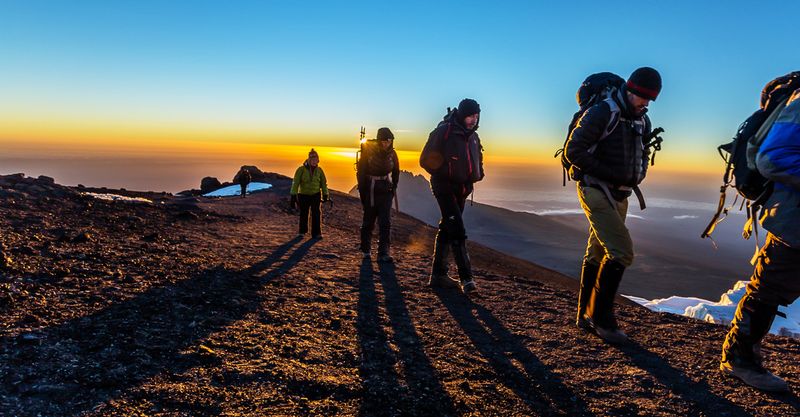What is the significance of Vaccines and Immunizations in preparing for a Kilimanjaro climb
Preparation for a safe and successful ascent to Kilimanjaro’s summit necessitates the integral inclusion of vaccines and immunizations. These not only shield you from prevalent regional diseases but also contribute to averting the transmission of illnesses among fellow climbers and the local communities.
Preventing the Spread of Illness
Kilimanjaro is a popular climbing destination, and the crowds can lead to the spread of illness if proper precautions are not taken. By getting vaccinated and practicing good hygiene, you can help to prevent the spread of disease to other climbers and local communities.
Protecting Yourself from Regional Diseases
In Tanzania, the nation where Kilimanjaro is situated, there is a heightened occurrence of specific diseases like malaria, yellow fever, and typhoid fever. Essential precautions include receiving vaccinations against these diseases before embarking on the climb to minimize the risk of contracting them throughout the journey.
Essential Vaccines and Immunizations for Adequate Kilimanjaro Climbing Readiness
For Kilimanjaro climbing preparation, various vaccines and immunizations are advised.
Some of the most important include:
Yellow Fever: Yellow fever, a severe and potentially fatal disease transmitted by mosquitoes, mandates proof of vaccination for all travelers to Tanzania, including Kilimanjaro climbers.
Malaria: Caused by parasites transmitted through infected mosquitoes, malaria lacks a vaccine. However, preventive measures like antimalarial medication and insect repellent usage can reduce the risk of infection.
Typhoid: A bacterial infection spread through contaminated food or water, typhoid vaccination is advised for all travelers to Tanzania, including those embarking on Kilimanjaro climbs.
Diphtheria, Tetanus, and Pertussis (DTP): Vaccination is effective against these bacterial infections, with a recommended booster shot every 10 years.
Hepatitis A and B: Viral infections leading to liver disease, both Hepatitis A and B vaccines are recommended for all travelers to Tanzania, including Kilimanjaro climbers.
When to Get Vaccinated & Immunized for Kilimanjaro Climbing Preparation?
It is advisable for travelers to receive vaccinations and immunizations at least 4-6 weeks before their Kilimanjaro trip. This timeframe ensures that the vaccines take effect and offer optimal protection.
What to Expect During a Vaccination Appointment
During your vaccination appointment, your medical history, including prior vaccinations and health conditions, will be discussed. Subsequently, the healthcare provider will recommend suitable vaccines and immunizations tailored to your individual requirements.
Importance of Keeping a Record of Vaccinations
Maintaining a comprehensive record of all received vaccines and immunizations, along with dates and types of shots, is crucial. This record serves as valuable documentation for proving vaccination when necessary for entry into specific countries or future travel arrangements.
Are There Any Side Effects of Vaccines & Immunizations for Kilimanjaro Climbing Preparation?
Similar to any medical procedure, vaccines and immunizations may occasionally induce side effects, typically mild and temporary. Common reactions include pain and redness at the injection site, fatigue, headache, and muscle aches.
When to Seek Medical Attention
Although serious side effects are rare, immediate medical attention is warranted if you encounter severe symptoms like difficulty breathing, hives, or swelling of the face and throat after vaccination.





